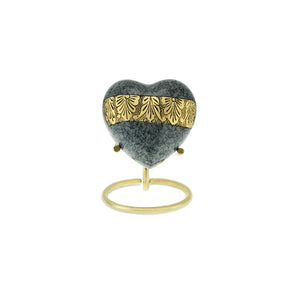Human composting, the shape of things to come?

Human composting, the shape of things to come? by Kristina Kennedy-Aguero
Human composting may sound like something out of a sci-fi or horror movie. However, this process could become a popular way to dispose of bodies in the near future.
What is human composting?
This technique involves turning a corpse into plant food. This is, of course, what eventually occurs to a body with a traditional burial. With human composting, however, the body receives a special treatment that speeds up the decomposition process.
The US company Recompose offers a process that quickly converts the body into usable, fertile soil. The process is based on a similar method currently used for composting livestock.
How does the process work?
The body lies in a hexagonal "vessel" on a heated mixture of plants and wood chips. During thirty days the bacteria and microbes break down the body. The decomposition process is speeded up by carefully controlling the amounts of carbon, oxygen, nitrogen, and moisture within the vessel.
Every ten minutes semsors take a temperature reading to ensure optimum conditions for the microbial activity. Additionally, the soil must maintain a temperature of 131-degrees F during 72-hours. This removes any pathogens.
Air blows through the vessel to oxygenate the process and the vessel rotates several times during the thrity-day process.
Next, the fresh soil goes into a curing bin to aerate for several more weeks. Screening then removes any nonorganic elements such as fillings, pacemakers, etc. The end result is approximately two wheelbarrows full of fertile soil.
Who invented human composting?
Founder and CEO of Recompose, Katrina Spade, has put in ten years of planning, and research. Additionally she campaigned for changes in the law changing to bring her process to fruition. Washington is the first US state to legalise human composting.
Early this year, Charlotte Bontrager became one of the first group of eight people to participate in the process. Her family chose to watch the "laying-in" on a live stream. When Coronavisus restrictions are lifted, families will be able to view this in person. One of her relatives stated, “As I’ve learned more about Recompose, I’ve found it to be a very graceful and beautiful way to go. It seems like a peaceful way for the body to move on to the next phase.”
Could human composting be the future trend here in the UK too?






